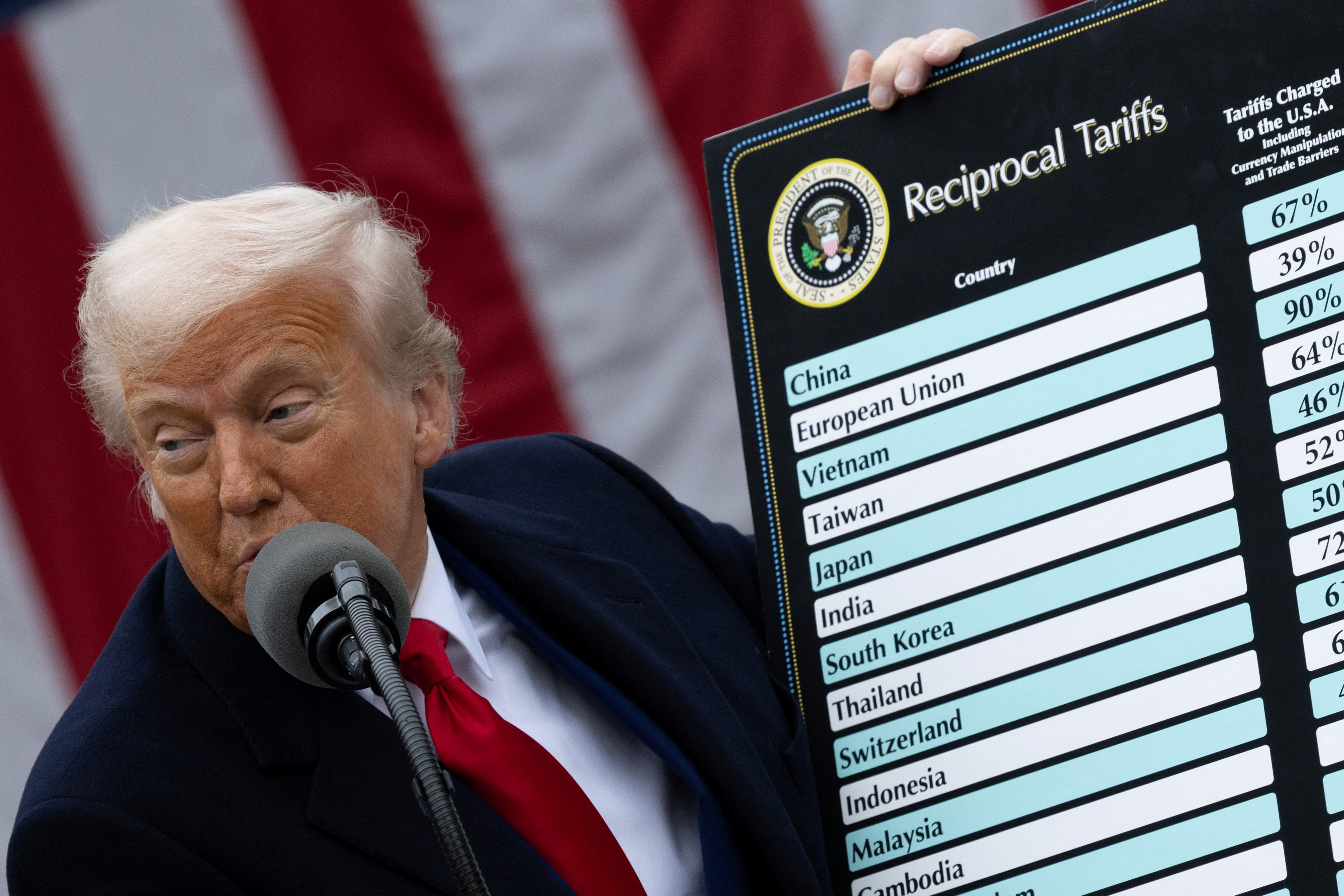US President Donald Trump's unilateral 10% tariff on all imports from many countries have taken effect, with higher levies on goods from 57 larger trading partners to start next week.
The initial 10% "baseline" tariff paid by US importers took effect at US seaports, airports and customs warehouses at 12.01am on Saturday (US Eastern Time), ushering in Trump's full rejection of the post-World War 2 system of mutually agreed tariff rates.
"This is the single biggest trade action of our lifetime," said Kelly Ann Shaw, a trade lawyer at Hogan Lovells and former White House trade adviser during Trump's first term.
Shaw told a Brookings Institution event on Thursday that she expected the tariffs to evolve over time as countries seek to negotiate lower rates.
"This is a pretty seismic and significant shift in the way that we trade with every country on earth."

Among the countries first hit with the 10% tariff were Australia, Britain, Brazil, Colombia, Argentina and Saudi Arabia despite their having goods trade deficits with the United States last year.
New Zealand exporters will face a 10% tariff on all goods to the US from this weekend. But Prime Minister Christopher Luxon says the Pacific nation is "relatively well positioned" to weather Trump's new sweeping global tariffs, because it's been hit with the "baseline tariff" by the US whereas other countries had received "much higher", RNZ reported this week.
White House officials have said many countries would run larger deficits with the US if their policies were fairer.
A US Customs and Border Protection bulletin provided a 51-day grace period for cargoes loaded or in transit to the US before 12.01am on Saturday. These cargoes need to arrive by May 27 to avoid the 10% duty.
Trump's higher "reciprocal" tariff rates of 11% to 50% are due to take effect on Wednesday at 12.01am (Eastern Time). European Union imports will face a 20% tariff, while Chinese goods will be hit with a 34% tariff, bringing Trump's total new levies on China to 54%.
Beijing on Saturday said: "The market has spoken" in rejecting Trump's tariffs. China applied a slew of countermeasures, including extra levies of 34% on all US goods and export curbs on some rare earth minerals.
"China has been hit much harder than the USA, not even close," Trump said on Saturday on social media. "THIS IS AN ECONOMIC REVOLUTION, AND WE WILL WIN. HANG TOUGH, it won't be easy, but the end result will be historic."
Shortly after posting the comment, Trump was spotted arriving at his Trump National Golf Club in Jupiter, Florida, reading a New York Post article covering China's retaliation to US tariffs and the stock market fall.
SHELTER FROM THE STORM
"A trade war is in no one's interest. We must stand united and resolute to protect our citizens and our businesses," French President Emmanuel Macron said in a post on X.
Some world leaders hoped to strike a deal with Trump and avert economic fallout, while others weighed countermeasures.
British Prime Minister Sir Keir Starmer wrote in the Telegraph newspaper that he was ready to "use industrial policy to help shelter British business from the storm," noting that his government's priority was to try to secure a trade deal with the US which could include tariff exemptions.
Israeli Prime Minister Benjamin Netanyahu's office said he will depart for Washington on Sunday for a meeting with Trump to discuss the new 17% tariff on Israel.
Media reported Prime Minister Shigeru Ishiba of Japan, which faces a 24% levy, was seeking a telephone conversation with the president.
Vietnam, which benefited from the shift of US supply chains away from China after Trump's first-term trade war with Beijing, agreed on Friday to discuss a deal with the US after Trump announced a 46% tariff on Vietnamese imports.
The head of Taiwan's National Security Council was in Washington for talks that were expected to include the tariffs, a source said. Taiwan President Lai Ching-te huddled with tech executives on Saturday to discuss how to respond to the 32% duty imposed on its products.
Italian Economy Minister Giancarlo Giorgetti warned on Saturday against imposing retaliatory tariffs on the United States, saying at a business forum near Milan that doing so could cause damage.
US billionaire Elon Musk, a close Trump adviser, told a political event in Italy by video on Saturday that he hoped to see complete freedom of trade between the United States and Europe, which he described as "a zero tariff situation."
Canada and Mexico were exempt from Trump's latest duties but still face a 25% tariff imposed recently on goods that do not comply with rules of origin under a North American trade accord.
While Trump's order exempted 1000 product categories from the new tariffs such as pharmaceuticals, uranium and semiconductors, the administration is considering new duties on some of them.













